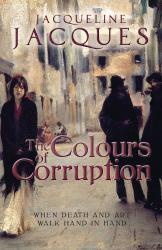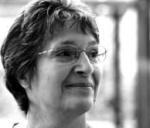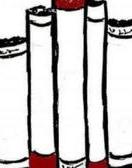As I promised on Thursday, here are the results of an email interview that I conducted with author Jacqueline Jacques about her new novel, The Colours of Corruption. I have actually divided the Q and A into two sections as it is quite a long piece and I will post Part II up tomorrow. Since reading the book and working on the questions, I have learnt that The Colours of Corruption has been put forward by its publisher for inclusion in the People’s Book Prize 2013. There is still time to cast your vote as the polls close on 20th May (I have already cast mine!).

Art plays a large part in your novel. Can you start by telling us a little about why you decided to make a painter your protagonist?
I wanted to write a crime novel from the point of view of someone who was neither criminal nor victim, policeman nor private detective. I don’t know enough about police procedurals to write confidently about them, but I do know a bit about painting and painters. Listening to Woman’s Hour one day I heard Lois Gibson talking about her work as a forensic artist, drawing the perpetrators of crime from their victims’ descriptions. I researched further and was astonished at how large a part such artists play, even today, in the solution of crime. Archie Price, with his extraordinary gift for almost reading a witness’s mind, would have been invaluable to the police, at a time when photography was in its infancy. Passionate about his painting, he is, at the same time quite naive about the real world and unprepared for the vicious criminals he comes up against. He has all-too-human frailties, is weak, is charming. An unreliable hero. Perfect.
I am a dyed-in-the-wool Brummie, but I still love reading fiction based on London’s many layered past. You said on your blog that Walthamstow features in most of your fiction. Can you tell us what it is in the place that keeps pulling you back to it in your work?
As a child I felt that it was the best place on earth to grow up in. It had (still has) an incredible bustle of creativity about it. Easy access to the forest gave me trees to climb, paths to ramble, changing seasonal moods to fire my imagination. There was the wonderful High Street market to explore, the library to feed my soul, the Town Hall grounds to play in, the marshes, the river, Lloyd Park for swings and roundabouts, and London, only half an hour away by train. Why Walthamstow? It was my home and I loved it.
Your engaging and courageous hero, Mary Quinn is an Irish woman whose family had all traveled over to England to find work. I was wondering if you have any Irish connections yourself.
Probably. My grandmother spoke of ‘Black Irish’ genes (Spanish Irish) in the family, and of ‘Great Uncle Archie coming over from Ireland,’ but I haven’t done any research on this.

Jacqueline Jaques
You really evoke a convincing sense of life in this often sordid part of Victorian England. How did you set about researching the period? And I was fascinated by the underground passages. Did they really exist?
I borrowed books and maps, studied photographs and paintings of the period. I went for walks on the Walthamstow marshes, through the streets and in Epping Forest. I trawled the Internet for social history, facts about the police, housing, tile patterns, music hall. But mostly I relied on my memory. I felt I knew these people; that I’d grown up among them. I may be a few generations removed from the characters in the book, but we, too, were poor (after the war) and struggled to stay afloat just as they must have done. My father, who grew up in Walthamstow in the 1920s, once told me about connecting cellars beneath the High Street shops, used by villains on the run from the police. It may have been a myth for all I know. My Dad was also a teller of tales. Truth or fiction? Who knows? I’m a writer. I’ll use anything to make a good story.
Following on from the research aspect, I was wondering if, while you plotted the novel you knew early in the process where your characters would be at the end of the story.
I vaguely knew that Archie would be drawn deeper into the criminal network but I had no idea what would happen to the other characters until the very end. In fact I wrote several endings, none of which worked to my satisfaction. As I got to know the characters, their histories, their motivations, they more or less told me how they would behave in any given circumstance and I wrote it down. Sometimes I would drop a fact into the mix, like Mary’s sweet singing voice, or a sword-stick, or a pair of gold cufflinks, just to see where it would take me. Sometimes it worked, sometimes it didn’t. It’s a haphazard way of working, but there’s nothing like it for excitement.
I Hope you enjoyed that look behind the scenes, more to follow shortly..

